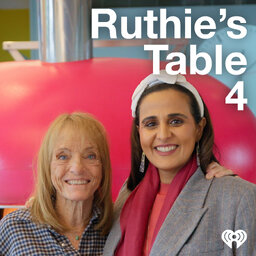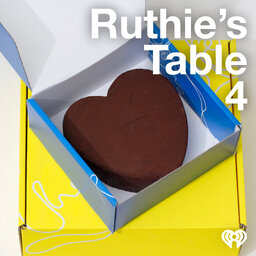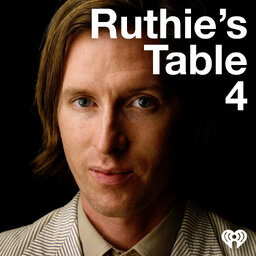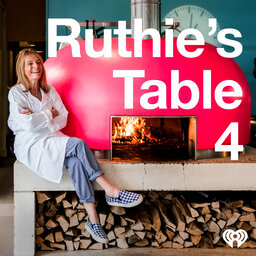Today, a Ruthie’s Table 4 first, our first couple interview. Recorded on location in New York, actors Matthew Rhys and Keri Russell join Ruthie to discuss their lives through food. Mathew grew up in Wales eating Cawl and Kerri started her career aged 15 where she had to fend for herself. They now live together with their children in Brooklyn and share a love for sage pasta, travelling through Italy, discovering local restaurants - and most of all a passion for each other.
In 1 playlist(s)
Ruthie's Table 4
Welcome to Ruthie's Table 4 hosted by Ruthie Rogers, co-founder and chef of The River Cafe in London…Social links
Follow podcast
Recent clips

Her Excellency Sheikha Al-Mayassa bint Hamad bin Khalifa Al Thani
28:28

Bonus: Valentine's Day At The River Cafe
12:17

Wes Anderson At Gagosian, Paris
18:08
 Ruthie's Table 4
Ruthie's Table 4